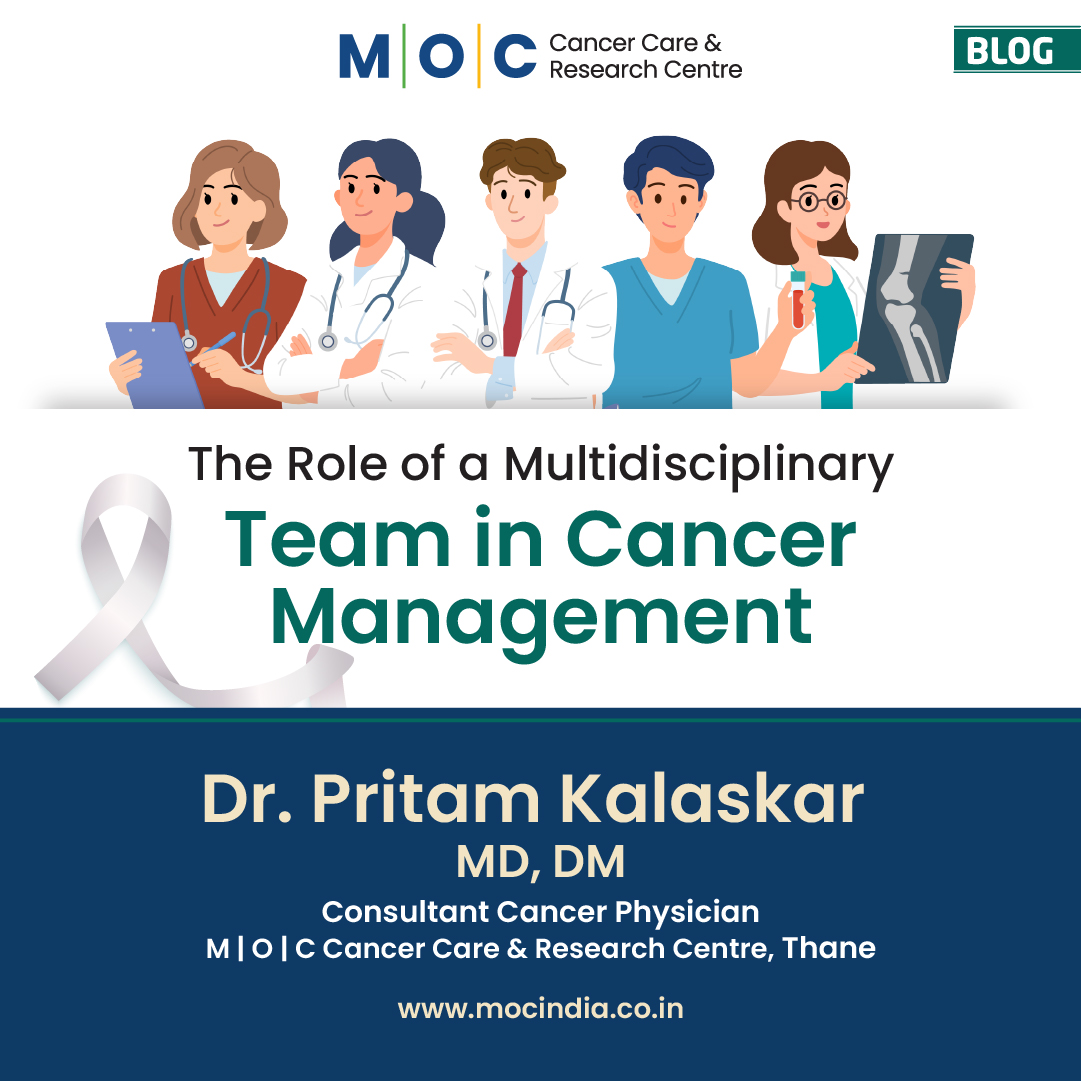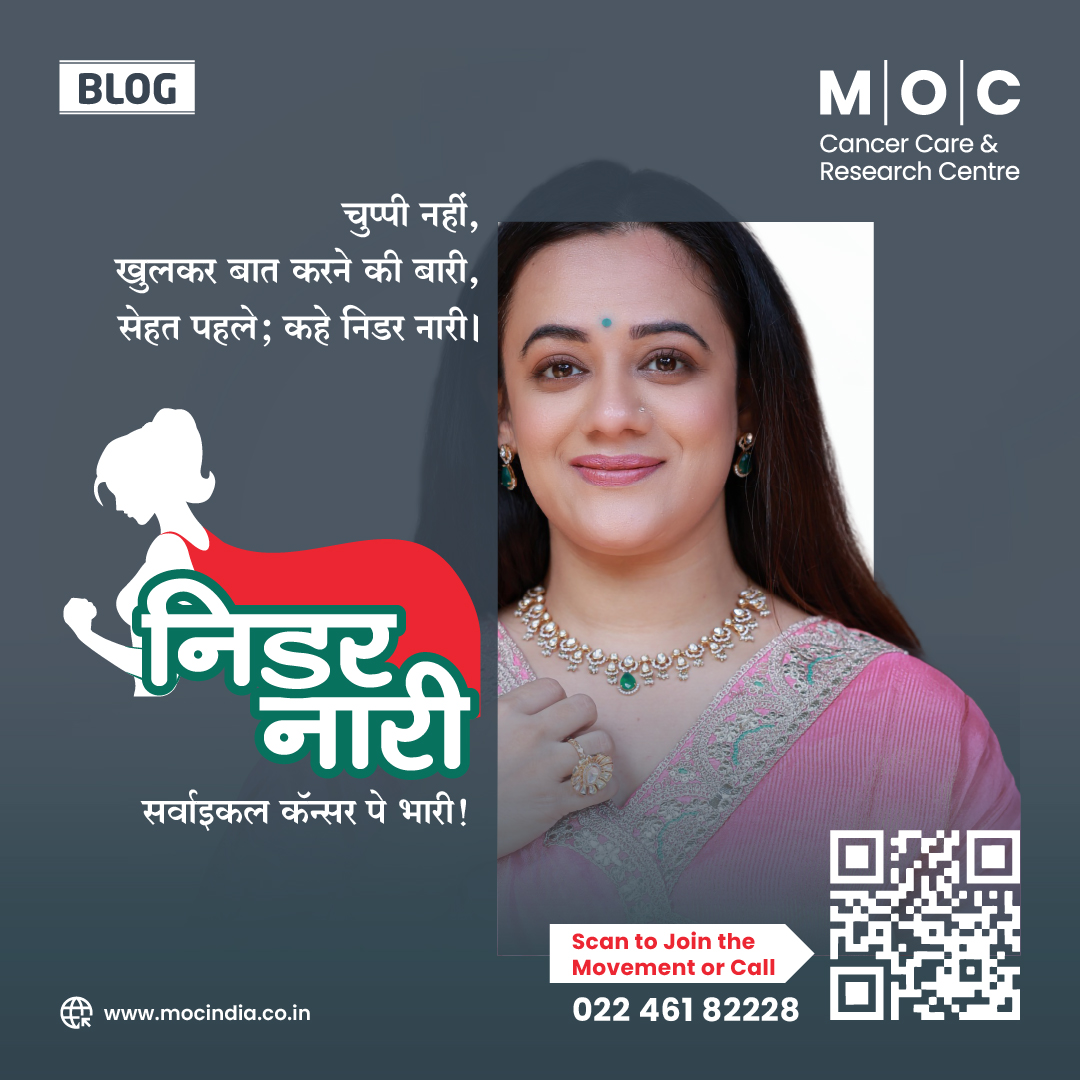The Role of a Multidisciplinary Team in Cancer Management



A multidisciplinary team or an MDT, simply put, is a team of specialised medical professionals involved in the cancer care of a particular patient, created to improve the treatment efficiency and effectiveness.
The concept of a multidisciplinary team was conceptualised in the late 1980’s after chemotherapy and radiotherapy became an integral part of cancer care and specialised medical professionals were needed to provide these specific therapies. A multidisciplinary team therefore ensured that the expertise of all medical professionals was available to the patient.
Gradually, when this approach started improving patient care and outcomes, oncological functional MDT units were created catering to disease-specific side effects and providing support services for patients.
A good example of a multidisciplinary team is a ‘breast unit’ or ‘multidisciplinary tumour board’ which is a working entity organised to facilitate every stage of a patient's need, right from imaging and biopsies to chemotherapy schedules and other therapeutic planning in one visit. Breast units therefore can facilitate a multidisciplinary team meeting with the patient, where teams will discuss the best treatment path forward and involve the patient in the therapeutic decision-making too.
An effective multidisciplinary team comprises of medical oncologists, surgeons, radiation oncologist, radiologists, pathologist, molecular oncologist and nurses specialising in cancer care, who form the core team. The support team includes specialists from nuclear medicine, a psychologist, onco-nutritionist, onco-physiotherapist, palliative care physicians and other specialists depending on the patient’s condition. The team discusses the therapeutic management of the cancer regularly and each member contributes based on their experience, expertise and guideline directives.
In the complex landscape of cancer treatment, a multidisciplinary team (MDT) plays a pivotal role in ensuring personalized and optimal patient care.
Advantages of a Multidisciplinary Team Approach
- Detailed diagnosis, comprehensive assessment and treatment planning.
- Specialized expertise
- Improved decision-making
- Reduced risk of error
- Enhanced patient care
- Improved quality of the patient’s life
- Improved patient outcomes
A multidisciplinary team approach is essential for providing optimal care to cancer patients. By bringing together experts from various fields, MDTs can offer comprehensive assessments, personalized treatment plans, and enhanced support, ultimately leading to improved outcomes for patients.
Dr. Pritam Baban Kalaskar
MD DM
Consultant Cancer Physician
MOC Cancer Care & Research Centre, Thane
.
Latest Blogs
-
![Nidar Naari is a movement initiated by M|O|C Cancer Care & Research Centre]()

- 10th Feb, 2026
- Nidar Naari is a movement initiated by M|O|C Cancer Care & Research Centre
-
![Cervical Cancer Awareness Month- January 2026]()

- 23rd Jan, 2026
- Cervical Cancer Awareness Month- January 2026
-
![Why Vaccinating Boys Against HPV is a Win for Everyone ?]()

- 20th Jan, 2026
- Why Vaccinating Boys Against HPV is a Win for Everyone ?
-
![Are Pollution and Chemical Exposure Driving the Rise of Blood Cancer Cases in Children?]()

- 17th Jan, 2026
- Are Pollution and Chemical Exposure Driving the Rise of Blood Cancer Cases in Children?
-
![Significant Advancements in Cancer Treatment in 2025- Dr Kunal Jobanputra- M|O|C Kemps Corner and Mahim]()

- 12th Jan, 2026
- Significant Advancements in Cancer Treatment in 2025- Dr Kunal Jobanputra- M|O|C Kemps Corner and Mahim
-
![Managing sleep disturbances during and after cancer treatment]()

- 11th Dec, 2025
- Managing sleep disturbances during and after cancer treatment
Book Your Appointment








